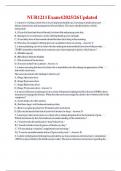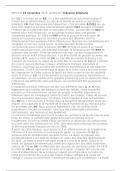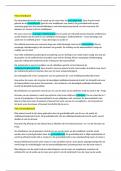Author: William Shakespeare
First performed: 1606, London
---------------------------------------------------------
The facts
The title
The movie is based on Shakespeare’s play ‘MacBeth’. The
title is the name of the main character of the story.
Summary
The movie begins with the brief appearance of a trio of
witches and then moves to a military camp, where the Scottish King Duncan
hears the news that his generals, Macbeth and Banquo, have defeated two
separate invading armies—one from Ireland, led by the rebel Macdonwald, and
one from Norway. Following their pitched battle with these enemy forces,
Macbeth and Banquo encounter the witches as they cross a moor. The witches
prophecy that Macbeth will be made thane (a rank of Scottish nobility) of Cawdor
and eventually King of Scotland. They say MacBeth can only be killed by a man
who is not born from a woman and that he will be invincible until Great Birnham
wood comes to Dunsinane hill. They also prophesy that Macbeth’s companion,
Banquo, will beget a line of Scottish kings, although Banquo will never be king
himself. The witches vanish, and Macbeth and Banquo treat their prophecies
skeptically until some of King Duncan’s men come to thank the two generals for
their victories in battle and to tell Macbeth that he has indeed been named thane
of Cawdor. The previous thane betrayed Scotland by fighting for the Norwegians
and Duncan has condemned him to death. Macbeth is intrigued by the possibility
that the remainder of the witches’ prophecy—that he will be crowned king—might
be true, but he is uncertain what to expect. He visits with King Duncan, and they
plan to dine together at Inverness, Macbeth’s castle, that night. Macbeth writes
ahead to his wife, Lady Macbeth, telling her all that has happened.
Lady Macbeth suffers none of her husband’s uncertainty. She desires the
kingship for him and wants him to murder Duncan in order to obtain it. When
Macbeth arrives at Inverness, she overrides all of her husband’s objections and
persuades him to kill the king that very night. He and Lady Macbeth plan to get
Duncan’s two chamberlains drunk so they will black out; the next morning they
will blame the murder on the chamberlains, who will be defenseless, as they will
remember nothing. While Duncan is asleep, Macbeth stabs him, despite his
doubts and a number of supernatural portents, including a vision of a bloody
dagger. When Duncan’s death is discovered the next morning, Macbeth kills the
chamberlains—ostensibly out of rage at their crime—and easily assumes the
kingship. Duncan’s sons Malcolm and Donalbain flee to England and Ireland,
respectively, fearing that whoever killed Duncan desires their demise as well.
Fearful of the witches’ prophecy that Banquo’s heirs will seize the throne,
Macbeth hires a group of murderers to kill Banquo and his son Fleance. They
ambush Banquo on his way to a royal feast, but they fail to kill Fleance, who
escapes into the night. Macbeth becomes furious: as long as Fleance is alive, he
, fears that his power remains insecure. At the feast that night, Banquo’s ghost
visits Macbeth. When he sees the ghost, Macbeth raves fearfully, startling his
guests, who include most of the great Scottish nobility. Lady Macbeth tries to
neutralize the damage, but Macbeth’s kingship incites increasing resistance from
his nobles and subjects. Frightened, Macbeth goes to visit the witches in their
cavern. There, they show him a sequence of demons and spirits who present him
with further prophecies: he must beware of Macduff, a Scottish nobleman who
opposed Macbeth’s accession to the throne; he is incapable of being harmed by
any man born of woman; and he will be safe until Birnam Wood comes to
Dunsinane Castle. Macbeth is relieved and feels secure, because he knows that
all men are born of women and that forests cannot move. When he learns that
Macduff has fled to England to join Malcolm, Macbeth orders that Macduff’s castle
be seized and, most cruelly, that Lady Macduff and her children be murdered.
When news of his family’s execution reaches Macduff in England, he is stricken
with grief and vows revenge. Prince Malcolm, Duncan’s son, has succeeded in
raising an army in England, and Macduff joins him as he rides to Scotland to
challenge Macbeth’s forces. The invasion has the support of the Scottish nobles,
who are appalled and frightened by Macbeth’s tyrannical and murderous
behavior. Lady Macbeth, meanwhile, becomes plagued with fits of sleepwalking
in which she bemoans what she believes to be bloodstains on her hands. Before
Macbeth’s opponents arrive, Macbeth receives news that she has killed herself,
causing him to sink into a deep and pessimistic despair. Nevertheless, he awaits
the English and fortifies Dunsinane, to which he seems to have withdrawn in
order to defend himself, certain that the witches’ prophecies guarantee his
invincibility. He is struck numb with fear, however, when he learns that the
English army is advancing on Dunsinane shielded with boughs cut from Birnam
Wood. Birnam Wood is indeed coming to Dunsinane, fulfilling half of the witches’
prophecy.
In the battle, Macbeth hews violently, but the English forces gradually overwhelm
his army and castle. On the battlefield, Macbeth encounters the vengeful
Macduff, who declares that he was not “of woman born” but was instead
“untimely ripped” from his mother’s womb (what we now call birth by cesarean
section). Though he realizes that he is doomed, Macbeth continues to fight until
Macduff kills and beheads him.
The movie ends with a scene of the three witches who encounter someone new.
Themes
The difference between kingship and tyranny
In the story king Duncan is always referred to as ‘king’, but MacBeth is known as
a ‘tyrant’. King Duncan seems to be loyal to his country and its people. He
attends parties and is kind to the citizens. However, MacBeth brings chaos, which
is symbolised by the bad weather and supernatural events. He is grumpy and
puts his own interests above loyalty to his kingdom. He is always seeking power
and concerning about his position as king, but he does not care about the
wellbeing of the inhabitants of his country. His behaviour is mostly driven by his






